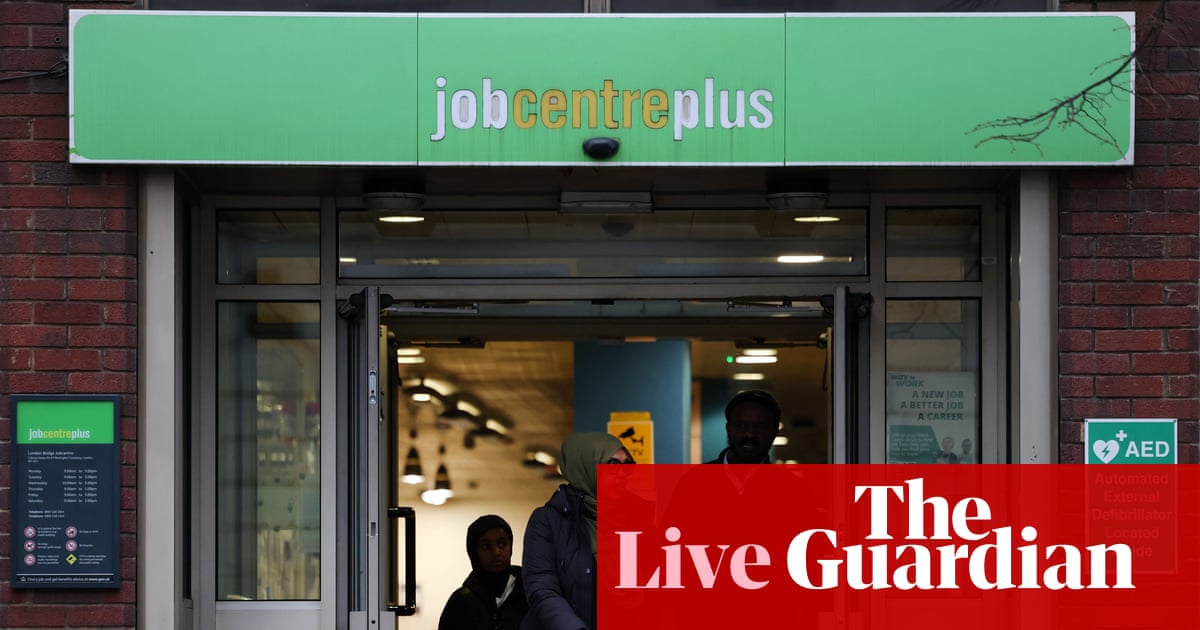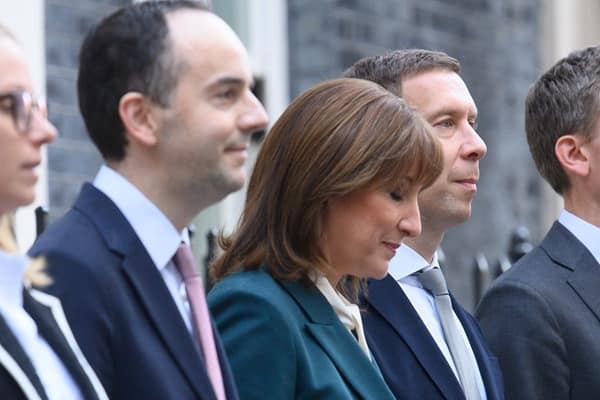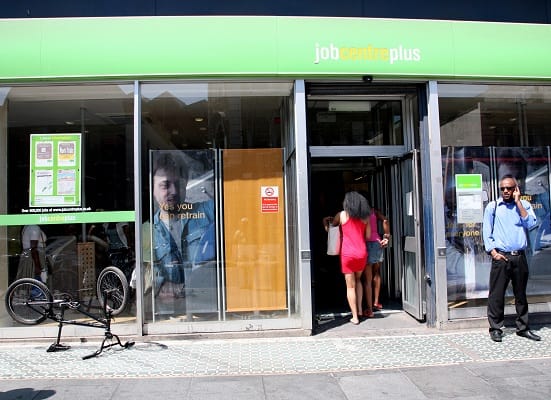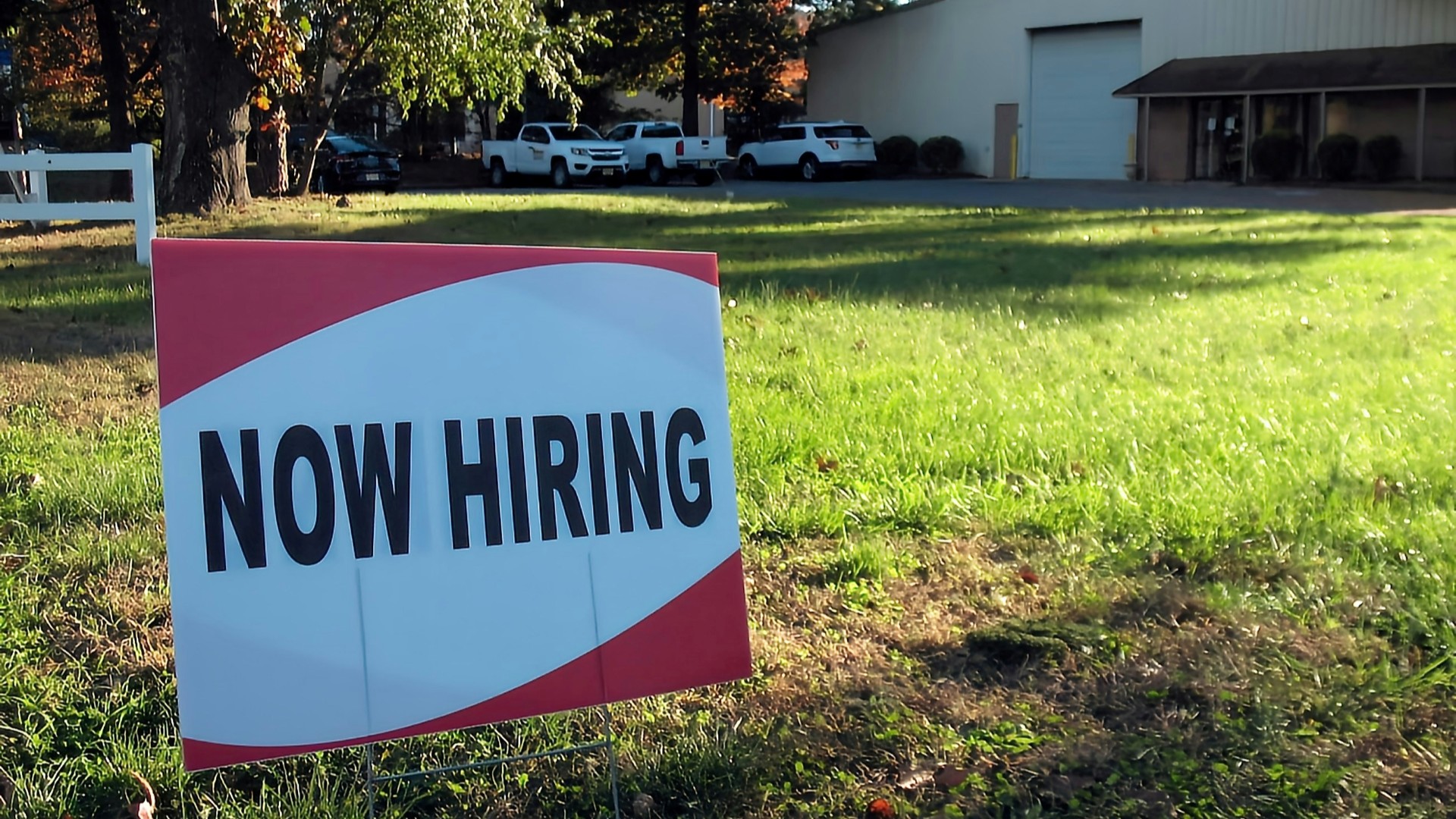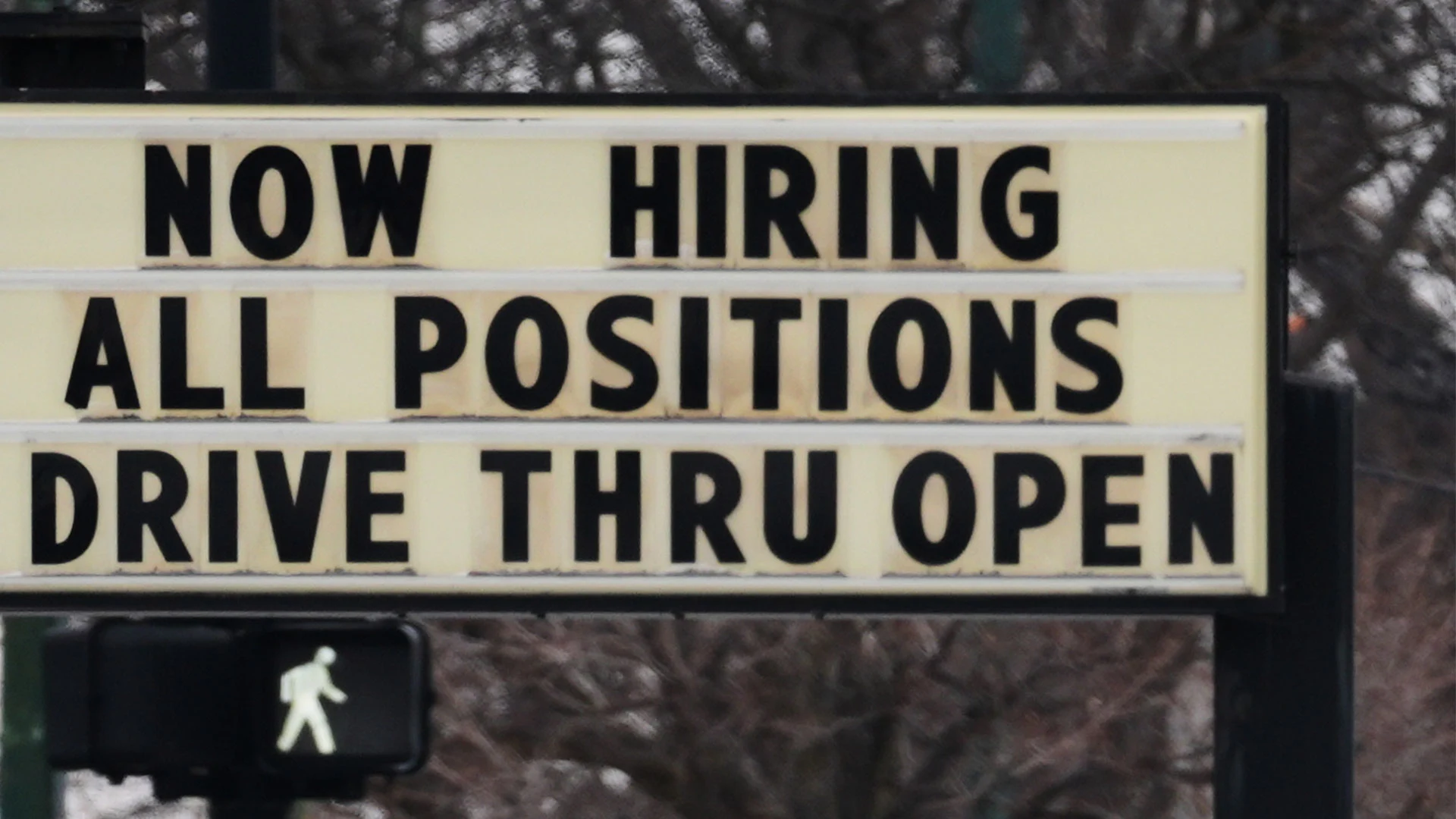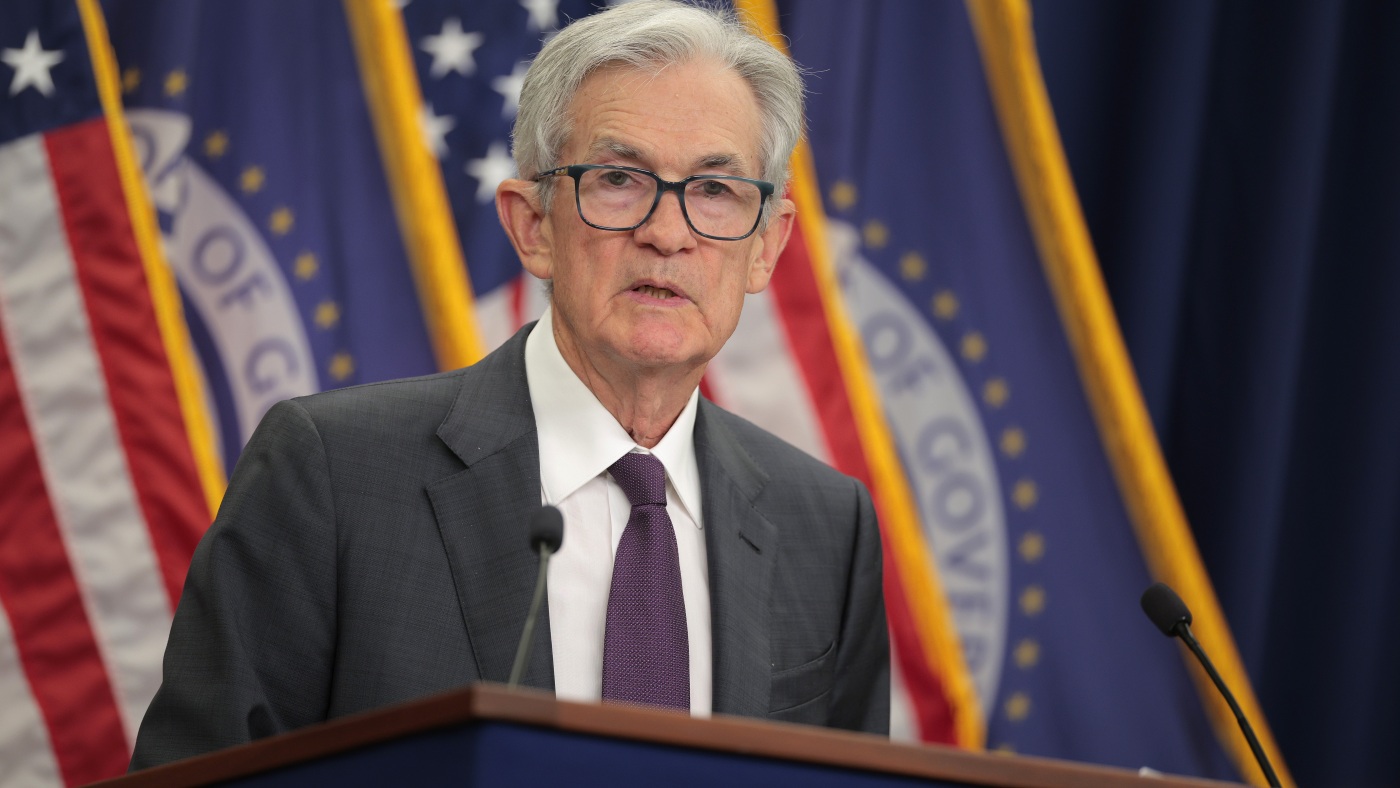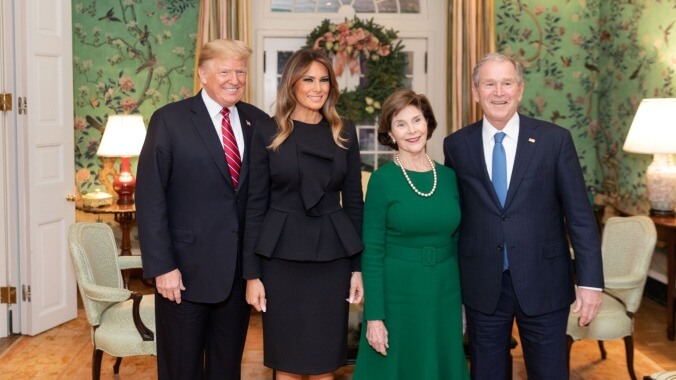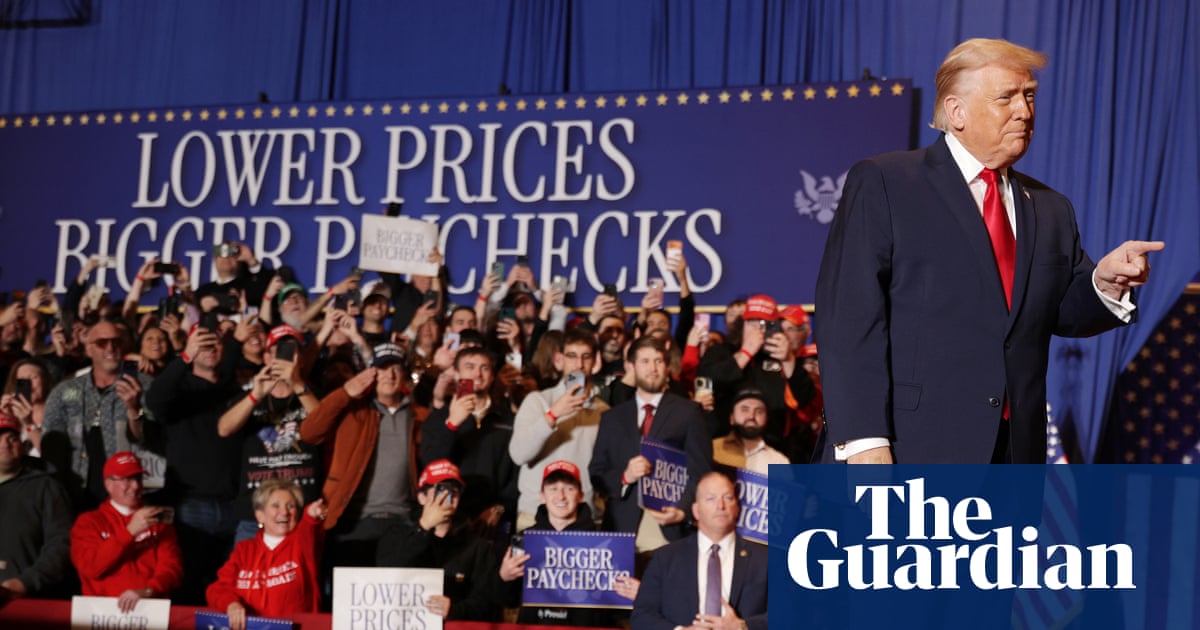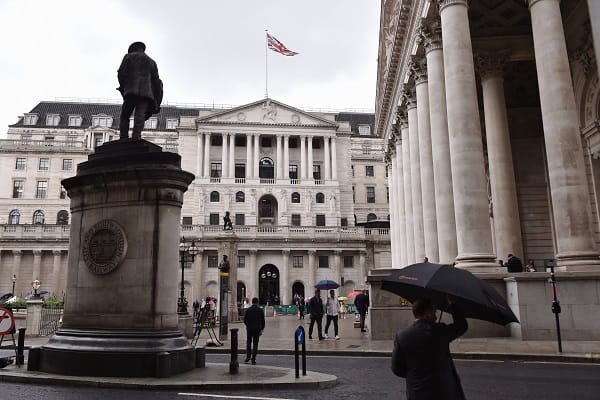#unemployment
#unemployment
[ follow ]
#labor-market #inflation #federal-reserve #artificial-intelligence #wage-growth #interest-rates #us-labor-market
fromFortune
2 weeks agoTurns out the U.S. economy didn't create half a million jobs last year. It was just 181,000 | Fortune
U.S. employers added a surprisingly strong 130,000 jobs last month, but government revisions cut 2024-2025 U.S. payrolls by hundreds of thousands. The unemployment rate fell to 4.3%, the Labor Department said Wednesday. The report included major revisions that reduced the number of jobs created last year to just 181,000, a third the previously reported 584,000 and the weakest since the pandemic year of 2020. The job market has been sluggish for months even though the economy is registering solid growth.
US news
Careers
fromBusiness Insider
3 weeks agoI was laid off 1.5 years ago and still can't find a full-time job. I feel like I'm working harder than ever, yet making less than I did before.
Laid-off marketing professional moved from LA to Tampa, facing long-term unemployment, financial strain, relentless job search, and improved well-being after returning home.
Careers
fromSlate Magazine
3 weeks agoMy Boyfriend Is No Stranger to Tech Layoffs. But This Time, Something Is Making It Very Different.
A midcareer software engineer faces 18 months unemployed due to age, niche skills, and salary barriers, showing signs of depression and considering career retraining.
fromwww.theguardian.com
1 month agoEngland's most deprived areas to get worse by next election, report for No 10 finds
The forecasts from the Independent Commission on Neighbourhoods (Icon) show crime rates and unemployment will rise until the next election in England's 613 most deprived neighbourhoods, despite the government's promises to invest in local communities. The report's authors warn the extra money ministers have pumped in is not enough to counteract longer-term trends such as the increase in antisocial behaviour and the problems facing the retail and hospitality sectors.
UK news
Education
fromwww.theguardian.com
1 month agoYoung, lost and unemployed, I misread all the signs without realising the value in mistakes | Sofie Laguna
Early adult life involved disorientation, failed expectations, wrong choices, and persistent efforts to pursue acting while coping with unemployment and survival work.
fromAnOther
1 month agoPark Chan-wook on His "Bitter" Black Comedy, No Other Choice
At the narrative midpoint, pathetic protagonist Yoo Man-su ( Lee Byung-hun) - also a hobbying horticulturist with a bonsai mag subscription - arrives at the home of a man he deems a rival for one of the only paper jobs on the market. He wields a pistol concealed inside several oven gloves, intending to kill vinyl enthusiast Goo Beom-mo (Lee Sung-min) as a means of levelling the playing field.
fromBusiness Matters
1 month agoLabour urged to raise private pension access age to curb early retirement
Under existing rules, savers can draw on their private pension from age 55, 11 years before the state pension age, which is due to rise from 66 to 67 this year. Up to a quarter of a private pension, capped at £268,275, can be taken tax-free from that point. In a new intervention, the think tank said ministers should consider limiting access to private pension wealth before state pension age, either by raising the minimum access age or by reducing the amount that can be withdrawn tax-free.
UK politics
London politics
fromwww.standard.co.uk
1 month agoLondon jobs crisis: How the axe is falling on workers in shops, offices, pubs, factories and the City
London lost tens of thousands of jobs across retail, administration, transport, hospitality and manufacturing, driving the fastest regional rise in unemployment in the UK.
fromThe Mercury News
1 month agoLetters: States without minimum wage laws have low unemployment
Her complaint is that Republicans blocked legislative efforts to raise California's minimum wage, implying that if Republicans really cared about workers, they would support a higher minimum wage. She lists a group of U.S. states that have no state minimum wage law and thus "take advantage" of low-wage workers. Her question to the chairman: "What do the states on that list have in common?" The states are Alabama, Georgia, Indiana, Kansas, Kentucky, Louisiana, Mississippi, North and South Carolina, Tennessee, Texas, Utah and Wyoming.
US politics
US news
fromFortune
1 month agoDesperate job seekers are abandoning the idea of a 'dream job'-but an economist warns bosses about what could happen next | Fortune
Many new hires accept pay cuts and avoid negotiating offers, prioritizing employment stability as higher-paying opportunities and benefits become scarce.
Miscellaneous
fromLondon Business News | Londonlovesbusiness.com
1 month agoInflation reaches target in the Eurozone as unemployment rate ticks down - London Business News | Londonlovesbusiness.com
Eurozone inflation returned to the ECB's 2.0% target in December; core inflation eased to 2.3% and unemployment fell to 6.3%.
fromwww.aljazeera.com
1 month agoEconomic survival in Gaza decimated by Israeli counts on small initiatives
Gaza's unemployment rate has reached 80 percent, among the highest in the world, according to the United Nations. After more than two years of Israel's genocidal war on Gaza, the daily unbearable churn of mass death and mourning, with homes, hospitals and schools destroyed, the besieged Palestinian territory also faces the fastest and most damaging economic collapse on record. That is according to the United Nations, which says Gaza's unemployment rate has reached 80 percent.
World news
fromwww.aljazeera.com
1 month agoPoverty, unemployment skyrocket in the Gaza Strip after Israel's war
Now I have no work, I can't provide for my family, he told Al Jazeera, adding that he used to work in the infrastructure and farming sectors. I used to work with an axe to open water channels between the trees, plough the soil around them, spray pesticides, and plant tomatoes and cucumbers. I used to work from 7am to 4pm for 4050 shekels [$13-$15] per day.
World news
fromFortune
2 months agoThe K-shaped economy is carrying a ticking time bomb into 2026 | Fortune
The GDP number arrived just before Christmas, wrapped like good news. The U.S. economy grew at a 4.3% annual rate in the third quarter, blowing past economists' expectations and delivering the kind of headline that signals strength heading into the new year. Consumers went on an unusually strong spending tear while corporations cinched $166 billion in capital gains. President Donald Trump and his team wasted no time celebrating, taking a victory lap
US news
from24/7 Wall St.
2 months agoSocial Security Retirees Have Two Big Numbers to Watch for for COLA Predictions
While this seems like a generous COLA on the surface, the reality is that Cost of Living Adjustments have not done their job in making sure that benefits keep pace with inflation, and the value of benefits has been falling over time. Sadly, the decline has been substantial, with the Senior Citizens League reporting that benefits today are worth around $0.80 on the dollar compared to their buying power in 2010.
US news
fromwww.mediaite.com
2 months agoTrump Boasts Unemployment Bump Was Caused by His Federal Workforce Cuts: Those Jobs Are Not Necessary'
The only reason our Unemployment ticked up to 4.5% is because we are reducing the Government Workforce by numbers that have never been seen before. 100% OF OUR NEW JOBS ARE IN THE PRIVATE SECTOR! I could reduce Unemployment to 2% overnight by just hiring people into the Federal Government, even though those Jobs are not necessary. I wish the Fake News would report the 4.5% correctly. What I am doing is the only way to, MAKE AMERICA GREAT AGAIN!
US politics
US politics
fromwww.theguardian.com
2 months agoSusie Wiles interview might be a useful distraction from how poorly things are going for Americans
Susie Wiles described multiple Trump administration figures as extreme or unfit while economic data show job losses, rising unemployment, and growing political vulnerability.
Careers
fromBusiness Insider
2 months agoI got laid off at 57 and couldn't find work for 20 months. I had to sell my apartment and work odd jobs to make ends meet.
A 57-year-old HR manager endured unemployment, financial hardship, and depression, then regained stability by persisting and securing a new HR role after 20 months.
fromFast Company
2 months agoHow Trump's anti-DEI policies are hurting Black workers
When the government shutdown came to an end last month, the much-delayed jobs report for September was finally released, revealing that the unemployment rate had inched up to 4.4%-the highest it had been in four years. Amid a tough job market and economic uncertainty, it's little surprise that unemployment is on the rise again. In the latest jobs dispatch that was published today, unemployment had ticked up to 4.6% for the month of November. But it's a specific segment of the workforce that is most acutely feeling the effects of this spike in unemployment:
US politics
fromTruthout
2 months agoUnemployment Rate Hits Highest Level in 4 Years Amid Trump's Assault on Workers
Federal data belatedly released Tuesday shows that the US unemployment rate rose to the highest level in four years last month as President Donald Trump's administration continues its assault on the government's workforce and American corporations lay off workers at a level not seen in decades.
US politics
fromwww.mercurynews.com
2 months agoU.S. gained 64,000 jobs in November but lost 105,000 in October; unemployment rate highest since 2021
The United States gained a decent 64,000 jobs in November but lost 105,000 in October as federal workers departed after cutbacks by the Trump administration, the government said in delayed reports. The unemployment rate rose to 4.6%, highest since 2021. Both the October and November job creation numbers, released Tuesday by the Labor Department, were late because of the 43-day federal government shutdown. The November job gains came in higher than the 40,000 economists had forecast.
US news
fromwww.independent.co.uk
2 months agoUK unemployment rate rises in latest ONS data - latest
It reflects what businesses tell us they are less confident about hiring staff due to sky-high employment costs and a tidal wave of new employment legislation coming down the track. While there has been some easing of cost pressures - with average earnings including bonuses slowing to 4.7 per cent in the three months to October - labour costs remain a challenge.
UK politics
fromSlate Magazine
2 months agoI'm Not Mad at My Husband for Losing His Job. It's Everything That's Come After That Infuriates Me.
I am employed full-time. My husband is currently unemployed, after being laid off from his tech job. I'm the only one making ends meet and sometimes, I can't. I feel very frustrated by my husband's lack of "get up and go." He has been unemployed for over 15 months. I'm fed up and have threatened divorce a couple of times. Nothing ever changes. We got married when he first lost his job, because he needed insurance. I'm very stressed out and have been getting sick from all the stress.
Relationships
fromAol
2 months agoOregon woman, 25, says her boyfriend has been out of work for 3 months - here's why The Ramsey Show says that should 'scare the crap' out of her
When we decided to start living together, he said that he will cover the rent, which is about $1,300 a month, and I would pay for groceries and our utilities,
Relationships
UK politics
fromLondon Business News | Londonlovesbusiness.com
2 months agoOECD warns Reeves 'unemployment is set to rise' amid Budget policies - London Business News | Londonlovesbusiness.com
Labour policies, including higher employer national insurance and minimum wage increases, are forecast by the OECD to raise unemployment and keep inflation above target.
Parenting
fromSlate Magazine
2 months agoMy Husband Became an Accidental Stay-at-Home Dad. He Has Many Complaints About What That's Like.
Unplanned role reversal created financial strain and emotional injury; prioritize empathy, open communication about his loss of provider identity, and collaborative practical planning.
US politics
fromFortune
3 months agoWhy is Black female unemployment soaring? Experts gather in Boston to discuss 7.5% unemployment rate | Fortune
Black women face rising unemployment despite the highest female labor force participation, revealing uneven economic pressures and risks for the broader economy.
[ Load more ]



